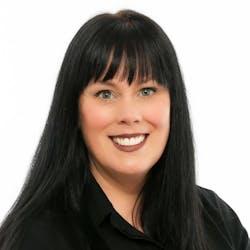We all desire to be great leaders, however, not all of us are effective ones. Learning to identify and respond to our own leadership weaknesses will help us be better leaders for our dental practices, and in the process, build stronger, more unified teams. Understanding your limitations is the first step toward unlocking your maximum leadership potential.
According to Ben Brearley, leadership coach and founder of Thoughtful Leader, there are four weaknesses business leaders should learn from:1
- Knowledge weakness - when you have a limited understanding in a specific topic; can be related to a lack of experience in that topic.
- Experience weakness - when you have limited exposure to particular tasks, roles, or situations.
- Skills weakness - if you were never properly trained or do not have the previous experience needed to excel at the task or topic.
- Weakness related to personality - personal aspects of yourself such as a lack of confidence, introverted nature, or a lack of self-awareness.
How can you identify what some of your own weaknesses might be? Identify situations that make you feel uncomfortable, anxious, fearful, angry, or give you a sense of dread. You may actually go out of your way to avoid these situations entirely. They are positions or tasks that are known to push your buttons. It could be setting your team’s work schedule, reviewing A/R reports, or posting on social media. To determine what your weaknesses might be, Ben Brearley suggests asking yourself four questions:
- What parts of my role do I often dread or try to avoid?
- What makes me uncomfortable in my leadership role?
- Do certain situations make me angry or frustrated at work?
- Do I feel exposed or vulnerable at work in specific areas?
You may find that you have one or more weaknesses, and you are not alone. Wake up call: Most of us are not perfect! What’s important is that you identify your weaknesses and learn to use them to your advantage.
I view weaknesses as growth opportunities. Remember that it’s okay to admit your weakness to your team, because ultimately you are growing to be better for the practice and for them. Although it is important to be a confident leader, it’s just as important to lead with humility and authenticity. Teams are more invested in their practice when they feel they are contributing to a common goal. By engaging them to be a part of the solution, your relationships with them will thrive.
You can also use these weakness gaps to help build a better and more well-rounded dental team. Consider finding someone in your team who enjoys the type of task or skill that you do not. Maybe you have a fantastic coordinator who lives and breathes by their calendar. If you loathe setting the team schedule, it could be a great delegating opportunity to have that person be in charge of that task for you. That team member may love to take on more responsibilities and grow within the practice, making it a win-win situation.
If you don't have that person already within your work family, you might be motivated to hire someone with a certain skill set to fill that void. Searching for a candidate with accounting experience may help you with A/R reports, or if you find the internet daunting, hire a savvy dental assistant who loves social media to help increase your marketing. Remember, if everyone on the team is good at the same thing, the wheel never turns. Your job as a practice leader is to continue to move the practice forward, not to be every cog in the wheel.
As Gordon Hester said,2 “Being aware of your own weaknesses could be your biggest strength.” When you work to turn your weaknesses into strengths, you’re able to achieve personal growth, build a better team, develop stronger relationships, and ultimately be a better leader.
REFERENCES
- Thoughtful Leader. https://www.thoughtfulleader.com/
- Gordon Hester's Twitter account. https://twitter.com/gordonhester/status/1018805979322961920?lang=en






